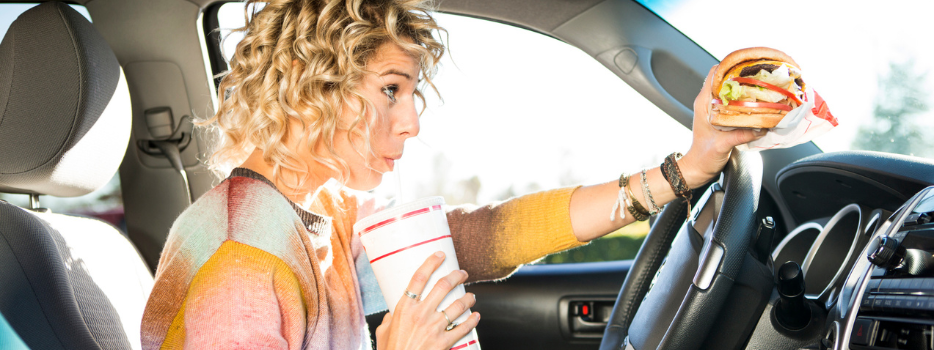Do you feel your life is more hectic than a few years ago? Maybe you’re eating fast food more often, multitasking constantly, cutting out activities you used to enjoy, and getting less sleep. If so, be warned! Sometimes, the changes we make to cope with our busy lives have negative consequences. Auto accidents are one of them.
Distracted driving is a serious problem that National Distracted Driving Awareness Month focuses on each April. According to the National Highway Traffic Safety Administration (NHTSA), crashes are still the leading cause of teen deaths. Every time we look down at our phones, we take our eyes off the road for an average of four to five seconds. Think of all the things that could happen during this short time:
- The car in front of you could stop.
- You could run a stop sign or red light.
- An animal or child could run out in front of your car.
- You could swerve and cross the centerline or hit a pedestrian.
There are three main types of driving distractions:
- Visual – taking your eyes off the road.
- Manual – taking your hands off the wheel.
- Cognitive – taking your mind off the task of driving.
Common driving distractions include:
- Texting or talking on a smartphone
- Eating or drinking
- Grooming (shaving or applying makeup)
- Reading
- Using a GPS
- Changing the radio station or scrolling for music
If you’ve ever glanced down at your phone, don’t remember turning onto your street, or reached your destination wondering where the time went, you were distracted. Driving is one of the most dangerous things we do daily, so paying close attention is vital for your safety and the safety of those around you.
Even small increases in attentiveness can make a difference. Here are ways to minimize distractions and drive safely:
Turn off your phone when you get in the car.
Notifications, calls, and texts create constant temptation. Turning off your phone eliminates this risk and helps keep your focus on driving.
Stop somewhere safe and legal to answer calls and texts.
Most states have laws prohibiting texting while driving.
Familiarize yourself with your car’s features.
You should be able to adjust your wipers and temperature settings without taking your eyes off the road. If you get a new car, practice locating controls with your eyes closed before driving.
Assign a passenger to handle calls and texts.
If you have someone with you, let them manage the phone so you can focus.
Enter GPS coordinates before driving.
Avoid typing while driving and ensure voice navigation is on and easy to hear.
Take a moment to calm your emotions before driving.
If you receive upsetting news or have a stressful conversation, take a few deep breaths and refocus before getting behind the wheel.
Stop in a safe place to address back seat situations.
Never drive with your head turned to the back seat, whether dealing with children or pets.
Secure pets properly in the vehicle.
Letting pets roam freely can be dangerous for you, them, and others on the road.
Avoid driving when tired.
Be sure to get adequate sleep to stay alert on the road.
Never use your knees as a substitute for having your hands on the steering wheel.
Don’t try to drive with your knees while multitasking with your hands. If you need to eat, do it before you leave or stop in a safe location.
Educating and leading by example are the best ways to prevent distracted driving, especially for teens. If they’re still not getting the message, tough love may be necessary; taking away a smartphone or car could be an inconvenience but it might save lives.
West Bend is pleased to offer resources that can help prevent distracted driving. Let’s all commit to making the roads safer by staying focused behind the wheel.






